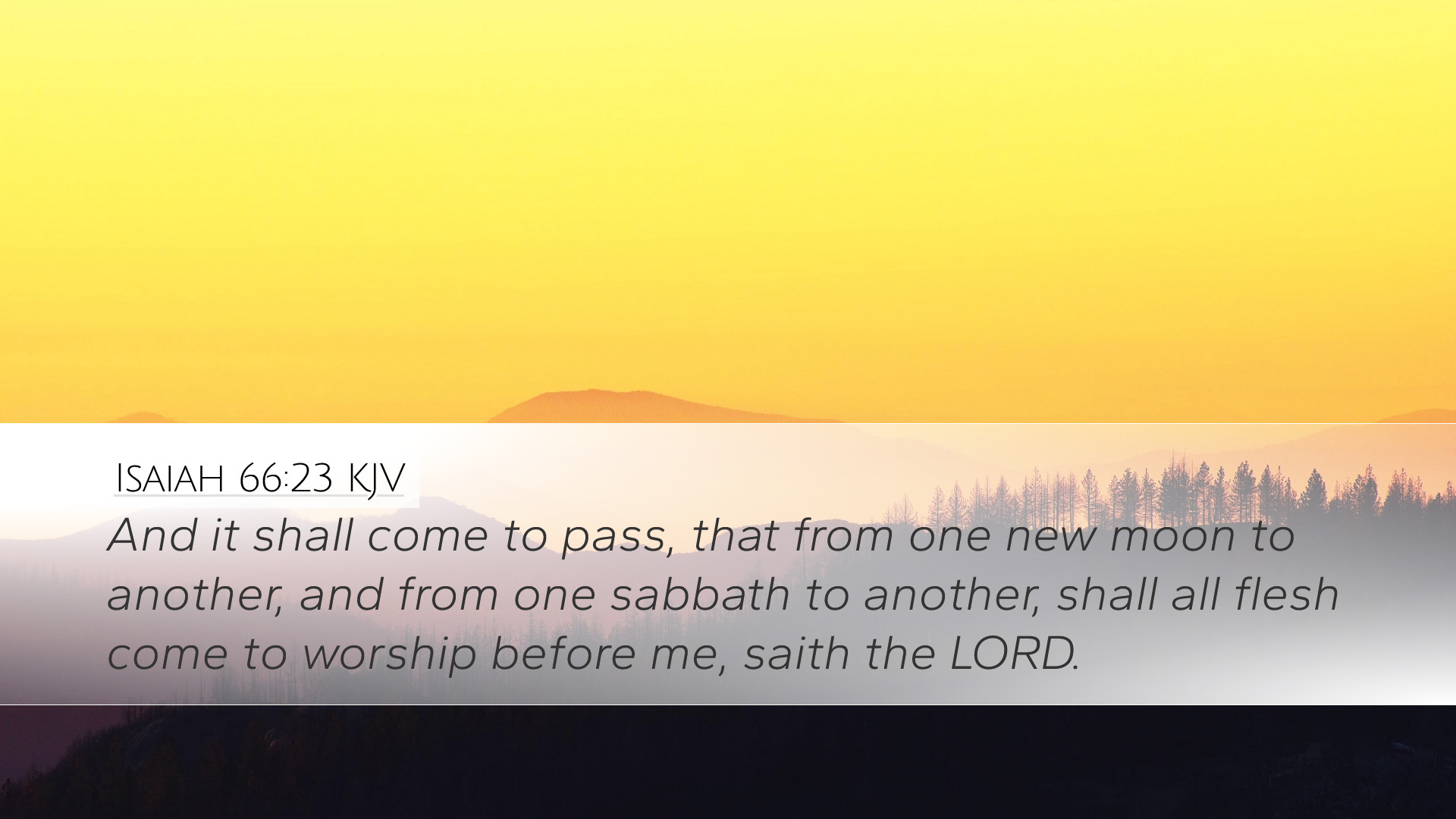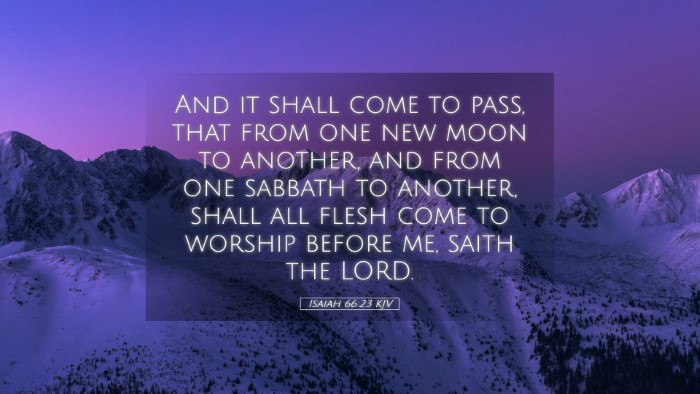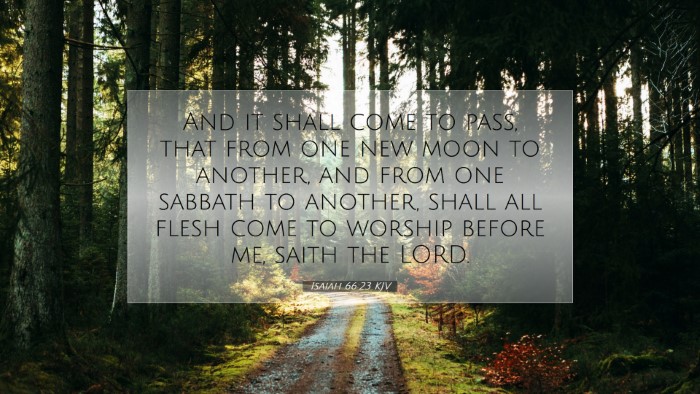Commentary on Isaiah 66:23
Isaiah 66:23 states, "And it shall come to pass, that from one new moon to another, and from one sabbath to another, shall all flesh come to worship before me, saith the Lord." This verse encapsulates profound theological truths concerning worship, the nature of time within God's sovereignty, and the universal scope of divine worship.
Overview and Context
The Book of Isaiah concludes with a triumphant vision of God's ultimate sovereignty and the renewed relationship between God and His creation. Isaiah 66 itself is a declaration of God's final judgment and the establishment of a glorious future. Within this context, verse 23 highlights the significance of worship in the eschatological age.
The Manner of Worship
Matthew Henry, in his commentary, emphasizes the regularity and universality of worship as depicted in this passage. The phrase "from one new moon to another, and from one sabbath to another" signifies a structured and cyclical nature to worship, harking back to the religious observances outlined in the Mosaic Law. This suggests that worship is not merely an occasional occurrence but a continual lifestyle.
Regularity of Worship
Henry notes that the new moon and the sabbath were times set apart for worship in Israel's religious calendar. Their occurrence emphasizes the idea that worship ought to be a central focus in the lives of believers, punctuating the rhythm of life with praises offered to God.
Universal Worship
Albert Barnes adds that the phrase "all flesh" denotes the inclusive nature of worship in God’s kingdom, indicating a transformation where worship is not restricted to Israel alone. This foreshadows the advent of the Gospel, which invites all nations and peoples to come and worship the one true God. Worship in this prophesied age includes people from every background, culture, and ethnicity.
Theological Implications
Isaiah 66:23 reveals underlying theological themes pertinent to understanding God's redemptive purpose. Adam Clarke elaborates on God's intent to restore fellowship with humanity, which had been marred by sin. The verse proclaims a future where worship transcends boundaries and is not limited by location—indicating that God desires to dwell among His people universally.
Celestial Realities
This verse also hints at the celestial realities that govern the new creation. Worship in heaven is ongoing. Clarke points out that the heavenly congregation's worship parallels the gatherings on earth, as both are expressions of reverence to the Creator. This reflects the idea that earthly worship is a shadow of the eternal worship of God is happening in heaven.
Time and Worship
Henry remarks on the notion of time signified by "new moon" and "sabbath." This reiteration illustrates God’s sovereignty over time and seasons, drawing believers to recognize every moment as an opportunity for worship. By emphasizing the cyclical nature of these time markers, the text encourages believers to view every month and every week as a moment to re-engage their hearts towards God.
Applications for Today
The implications of Isaiah 66:23 extend beyond the immediate context of Isaiah’s prophecy. For contemporary believers, the call to worship underscores both communal and personal responsibilities.
Emphasizing Community Worship
-
Community and Connection:
Engagement in corporate worship strengthens faith and builds unity among believers. Just as the nations will come together in worship, churches today are called to model this unity despite differences.
-
Regular Worship Practices:
Adopting rhythms of worship in our lives imitates the pattern set forth in Isaiah. Regular attendance at worship services, prayer times, and gatherings should be prioritized as essential to spiritual growth.
Personal Worship
-
Renewed Perspective:
Isaiah’s call to worship challenges believers to see their daily lives through the lens of worship, encouraging a lifestyle that integrates faith into every aspect.
-
Everyday Worship:
Understanding that worship is not confined to institutional settings but is a personal expression, believers are invited to offer praises in every moment—turning ordinary life into acts of adoration.
Conclusion
Isaiah 66:23 presents a vision of collective worship that spans beyond Israel to encompass all humanity, reflecting the inclusiveness of God’s plan of salvation. Through the lenses of commentaries by Matthew Henry, Albert Barnes, and Adam Clarke, we understand the multifaceted nature of worship as both a structured practice and a spontaneous expression of reverence to God. Scholars, pastors, and students are encouraged to grapple with the challenge of living out this call to worship, both collectively as the body of Christ and individually in their everyday lives.


